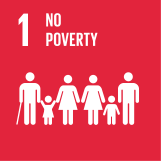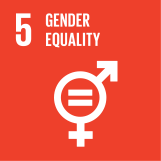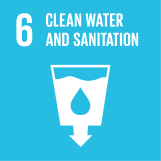Strategy and Governance > Reporting >
UN Sustainable Development Goals
Ford has pledged to promote the United Nations 2030 Agenda for Sustainable Development, by highlighting our strategic alignment with the UN’s Sustainable Development Goals (SDGs), and communicating how our products and operations contribute toward achieving them.
The 17 SDGs were accepted by all the member countries of the UN in September 2015, as part of a new sustainable development agenda intended to end poverty, protect the planet and ensure prosperity for all. The goals span economic, social and environmental challenges, and apply equally to developed, emerging and developing nations.
We continue to address those SDGs that most directly relate to our business and where we can add most value. As outlined in the index below, these include our ongoing efforts to reduce carbon and greenhouse gas (GHG) emissions; reduce water consumption; strengthen communities; and maintain high standards for human rights and working conditions.
However, such global challenges require effective, multi-stakeholder collaboration at a local, national and international level. So as we continue to implement our sustainability and reach to help meet these ambitions, we also call on all our stakeholders and partners to join us in our efforts.
| Sustainable Development Goal | Ford’s material issues | Report Links |
|---|---|---|
 No poverty End poverty in all its forms everywhere | Socio-economic contribution and community engagement | |
 Zero hunger End hunger, achieve food security and improved nutrition, and promote sustainable agriculture | Socio-economic contribution and community engagement | |
 Good health and well-being Ensure healthy lives and promote well-being for all at all ages | Employee wellness, health and safety Customer satisfaction, product quality and safety Socio-economic contribution and community engagement Air quality | |
 Quality education Ensure inclusive and equitable quality education and promote lifelong learning opportunities for all | Socio-economic contribution and community engagement Human capital Supply chain management, assessment, capacity building and performance | |
 Gender equality Achieve gender equality and empower all women and girls | Human capital Supply chain management, assessment, capacity building and performance Human rights | |
 Clean water and sanitation Ensure availability and sustainable management of water and sanitation for all | Water use | |
 Affordable and clean energy Ensure access to affordable, reliable, sustainable and modern energy for all | Operations and logistics energy use and GHG emissions Climate change resilience strategy and energy future | |
 Decent work and economic growth Promote sustained, inclusive and sustainable economic growth, full and productive employment and decent work for all | Human capital Supply chain management, assessment, capacity building and performance Financial health, intellectual property protection and brands perception | |
 Industry, innovation and infrastructure Build resilient infrastructure, promote inclusive and sustainable industrialization and foster innovation | Mobility, product and service innovation Sustainable cities and infrastructure | |
 Reduced inequalities Reduce inequality within and among countries | Socio-economic contribution and community engagement Human rights | |
 Sustainable cities and communities Make cities and human settlements inclusive, safe, resilient and sustainable | Sustainable cities and infrastructure Mobility, product and service innovation | |
 Responsible consumption and production Ensure sustainable consumption and production patterns | Environmental management, process innovation and biodiversity Mobility, product and service innovation Product carbon footprint and fuel economy Sustainable materials and waste management Water use | |
 Climate action Take urgent action to combat climate change and its impacts | Climate change resilience strategy and energy future Environmental management, process innovation and biodiversity Product carbon footprint and fuel economy |
|
 Life below water Conserve and sustainably use the oceans, seas and marine resources for sustainable development | ||
 Life on land Protect, restore and promote sustainable use of terrestrial ecosystems, sustainably manage forests, combat desertification, halt and reverse land degradation and halt biodiversity loss | Environmental management, process innovation and biodiversity | |
 Peace, justice and strong institutions Promote peaceful and inclusive societies for sustainable development, provide access to justice for all and build effective, accountable and inclusive institutions at all levels | Ethical business practices Government regulation and policy Human rights Human capital Customer privacy, data protection and understanding consumer behavior | |
 Partnerships for the goals Strengthen the means of implementation and revitalize the global partnership for sustainable development | Supply chain management, assessment, capacity building and performance Socio-economic contribution and community engagement |
